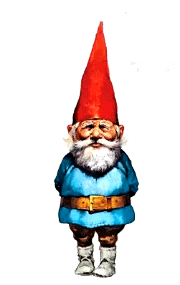
Bio Ashwagandha (Withania somnifera) Tincture 30 ml
22,00 €
Ingredients: 1:1 Organic alcohol 40%, Ashwagndha dried root
Keywords: Regenerative tonic, Calming tonic, Adaptogen, Nervous system, Stress, Insomnia, Infertility in men, Anti-inflammatory, aphrodisiac, reproductive tonic, sedative (mild), thyroid support, arthritis.
Energetics: Warming, sweet
Ashwgandha is an adaptogen herb which is known to help bring balance to the body, help with stress, adrenal exhaustion, and fatigue. It is known to help restore and regulate hormonal function, boost energy, and vitality. Ashwagandha is a wonderful adaptogen that can be used as a daily tonic.
Dosage
Intervention: 5 to 10 drops per day.
Treatment: 10-15 drops, 3 times per day max.
Directions for use
Shake before using. Take directly on the tongue or in a half glass of water or tea, 15 to 30 minutes
before meals. For long-term treatment, use 6 days out of 7.
Mode of Action
As a calming tonic, ashwagandha promotes the proper functioning of the nervous system. It is the ideal tonic for exhaustion and hyperactivity, conditions where Panax ginseng is not recommended due to its stimulating effect. As it mimics the activity of GABA, it has a tranquilizing effect and is used in the treatment of chronic anxiety. It stabilises the mood, relieves symptoms of mild depression and its slightly sedative action helps regulate sleep cycles without causing drowsiness. It is used in Ayurvedic medicine as a regenerative tonic (rasayana) as it improves general health, promotes longevity and stimulates the spirit. It supports the organism when plagued with fatigue, weakness, thinness due to stress and nervous exhaustion. Withania somnifera is also used during convalescence, it helps recover from acute diseases, intense stress or premature aging. Ashwagandha normalizes the metabolism, stabilises cholesterol levels and promotes cardio-vascular health. It reduces many physiological responses to stress. As an adaptogen acts on the immune system, increasing the production of white blood cells, and promotes a healthy immune response. As an endocrine tonic, ashwagandha stimulates the production and liberation of thyroid hormones and regulates the functioning of the adrenal glands. Athletes and those losing muscle mass will notice an increase in physical performance and endurance when using this herb. Withania somnifera is also a tonic of the sex organs. In men, it increases the quality of sperm and libido, counters infertility due to stress and helps treat erectile dysfunction. It reduces hair loss due to a testosterone deficiency. It is also a reproductive tonic in women, when used in association with shatavari (Asparagus racemosus). Ashwagandha is an anti-inflammatory and an analgesic that relieves inflammatory conditions such as asthma, psoriasis and joint pain. It protects cartilage, stimulates blood production and has both anti-tumor and anti-proliferation properties. In Ayurvedic medicine, it is considered the best herb to balance Vata. The main constituents of ashwagandha are alkaloids (isopelletierine, anaferine, ashwagandhinine, withasomnin withaninin), steroidal lactones (withanolide, withaferin), saponins (sitoindoside VII-X), withaferin A, phytosterols and minerals (iron).
Helpful Associations
Nettle infusion for fatigue and during convalescence.
Holy Basil Tulsi (available at Blissdorf) for exhaustion and nervous system troubles.
Ginko (available at Blissdorf) to increase memory and concentration.
Holy Basil extract (available at Blissdorf)
Gotu Cola extract (available at Blissdorf)
Ethnobotany
Nervous system: fatigue, exhaustion, convalescence, high stress, anxiety, insomnia, cognitive troubles. Bones and joints: arthritis, joint pain, rheumatoid arthritis.
Reproductive system: infertility in men, erectile dysfunction. Endocrine system: reproductive tonic, hypothyroidism.
Integumentary system: psoriasis.
History
Originally from the dry regions of India, Pakistan and Sri Lanka, ashwagandha is a major herb of the Ayurvedic pharmacopoeia. Its Hindi name, asgandh, is a reference to the odor of the roots which resembles that of horse urine. It is said that it gives the endurance and the strength of a stallion, alluding to its virtues as a
sexual tonic. In India, it is used traditionally for indigestion, cardio-vascular troubles, arthritis and during convalescence.
Consult a health care practitioner if pregnant or breastfeeding.
Contra-Indications
It is part of the nightshade family, so if you have allergies you may want to avoid this herb.
Interactions
Anticonvulsants, barbiturates, and benzodiazepines. Preclinical studies suggest that ashwagandha has sedative and GABAnergic properties, and may have additive effects.







